7 Top Hotel Point of Sale Systems: Complete Guide to POS Solutions for Hotels
Aug 4, 2025
 Mika Takahashi
Mika TakahashiPopular Categories
Hotel Technology & InnovationHotel Operations OptimizationDigital MarketingIndustry TrendsRevenue ManagementHospitality Industry
Popular Categories
Trending Post
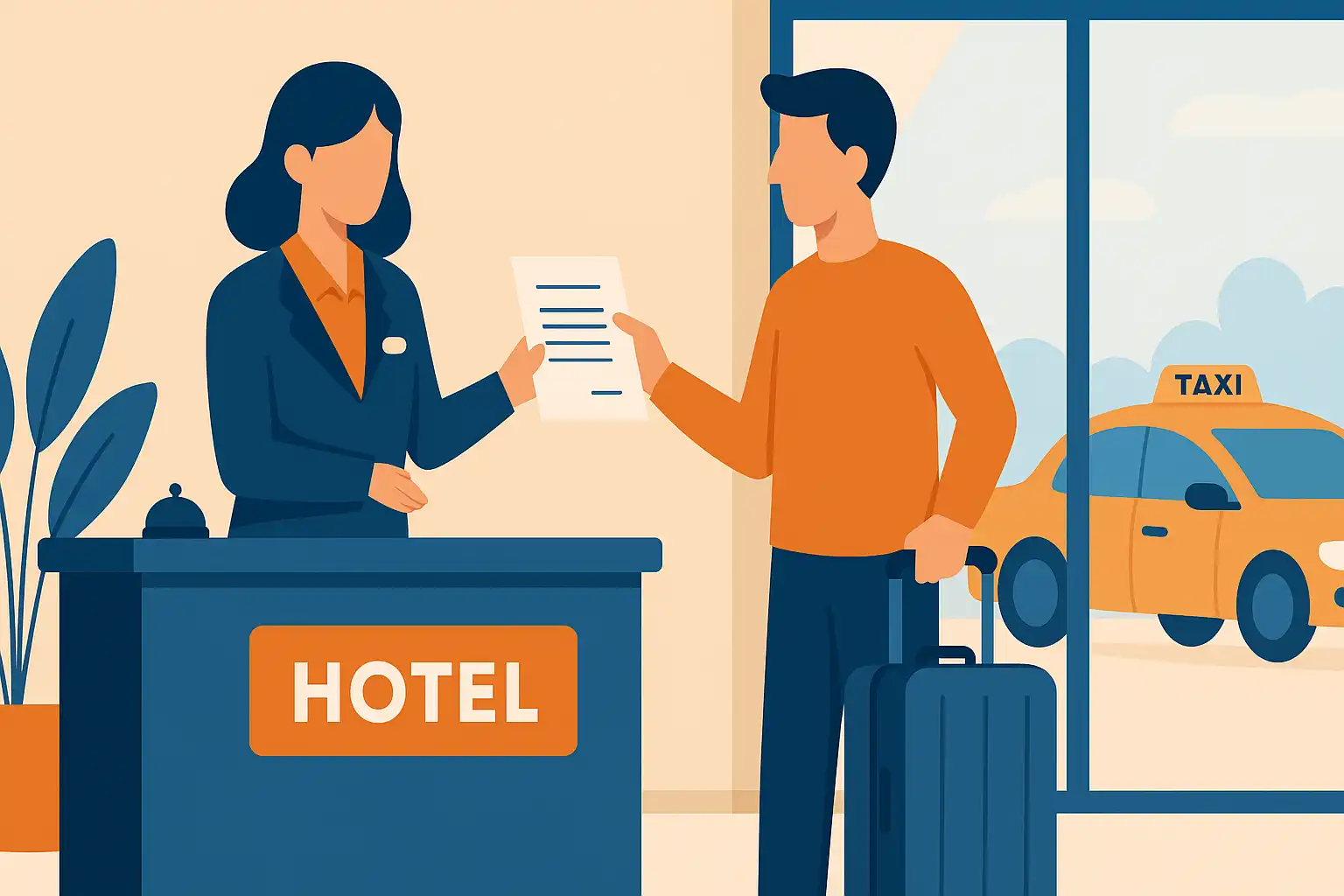
Hotel Walk Letter Template: Professional Guest Communication
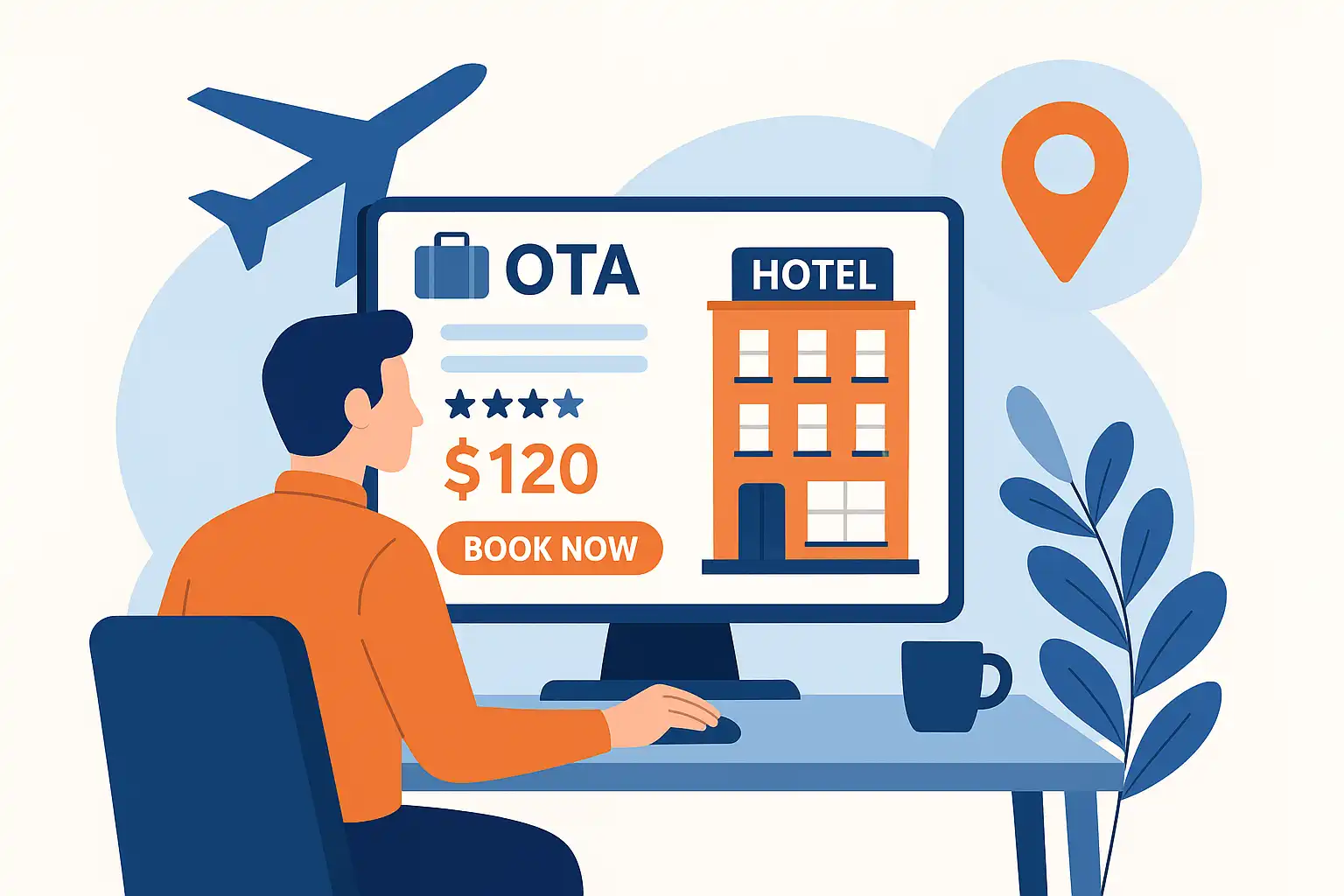
Online Travel Agents: What They Are and How They Work
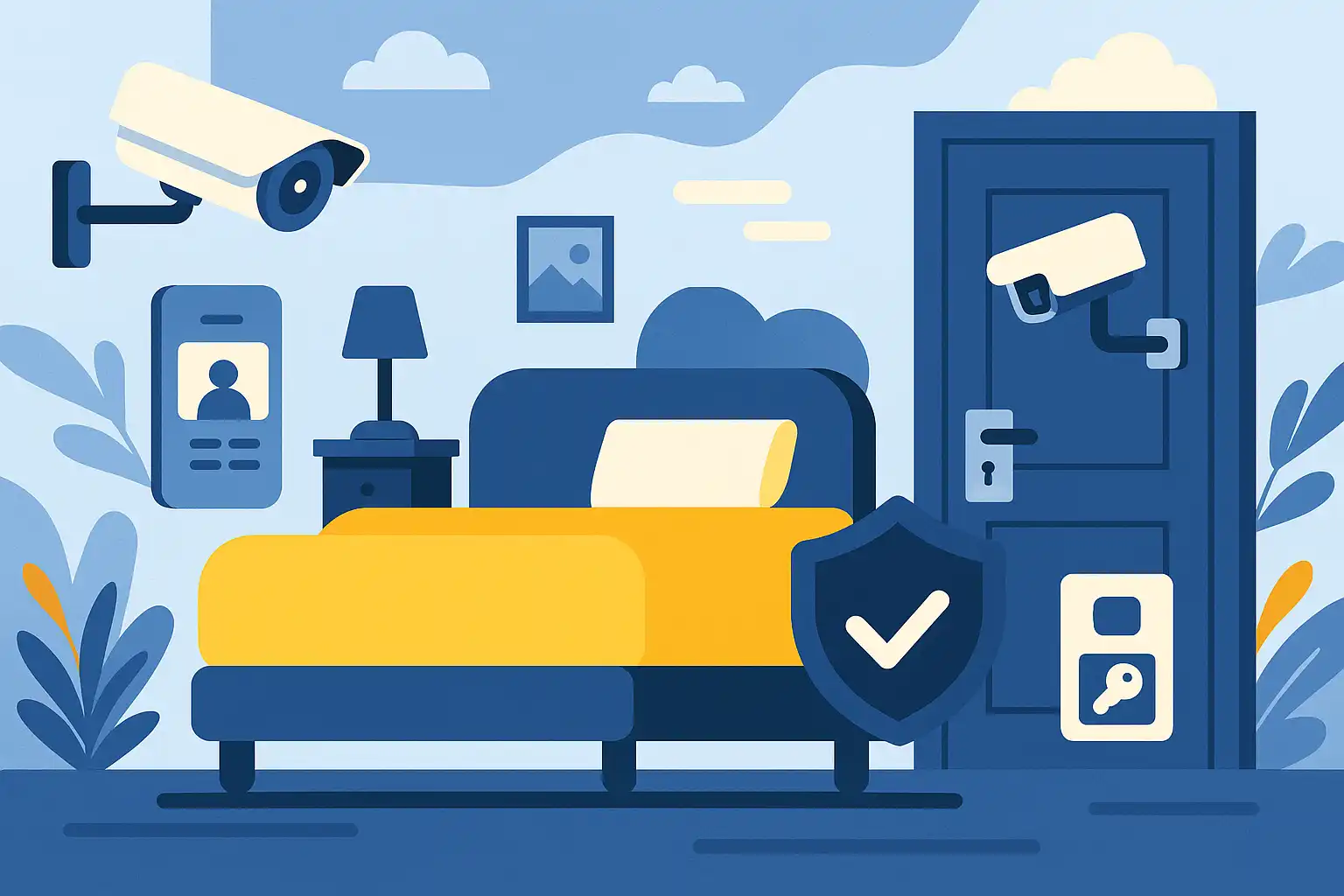
Hotel Security Systems: Modern Protection Solutions

Hotel Advertising: Complete Guide to Boost Bookings and Revenue
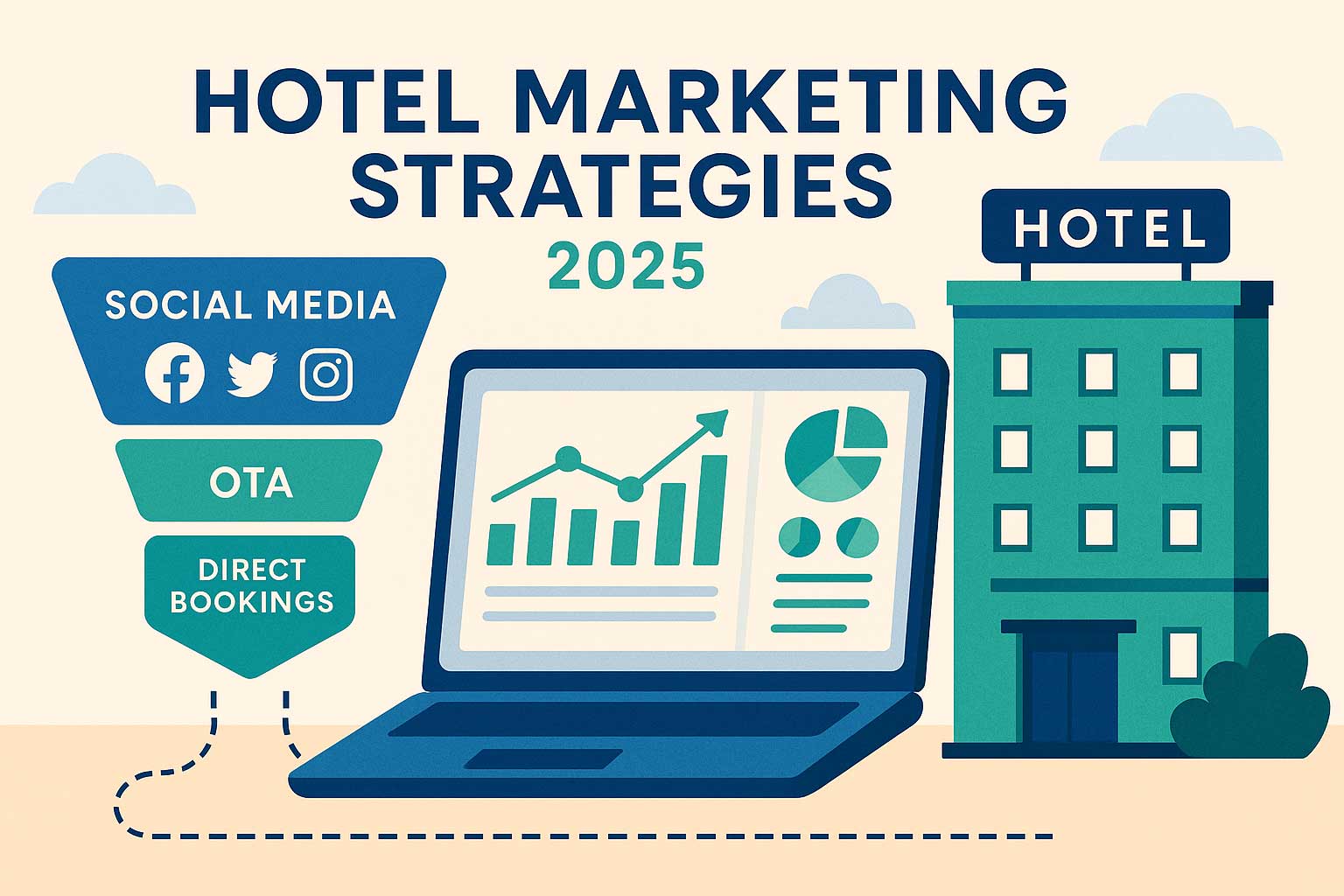
25 Hotel Marketing Strategy Ideas for 2025: Complete Guide

AI Reservation Agent: Revolutionizing Hotel Booking and Guest Experience

PMS Communication: Streamlining Property Management Through Effective Guest Messaging
Table of contents
Running a hotel means juggling multiple revenue streams—restaurants, bars, spas, room service—and keeping your guests happy every step of the way. To make this manageable, you need more than just good intentions; you need the right technology. These days, hotel point of sale systems are far more than just cash registers. They’re smart, integrated platforms designed to mesh perfectly with your hotel’s operations, helping boost revenue and elevate guest experiences.
Did you know that 53% of hospitality businesses have seen improved efficiency after adopting modern POS solutions? So, the real question isn’t whether your hotel needs an advanced pos system, but which one fits your unique needs best. This all-in-one guide walks you through everything—from must-have features and top providers to pricing and how to get started.
Whether you’re moving on from traditional pos systems or setting up your first integrated platform, understanding the hotel pos landscape will empower you to make choices that positively impact your bottom line for years to come.
What Exactly Are Hotel Point of Sale Systems?
Hotel pos systems are specially designed software and hardware combos that help manage transactions across all your hotel’s revenue spots. Unlike your typical restaurant pos system, these solutions tackle the unique challenges of hospitality—from room service charges automatically appearing on guest folios to spa bookings syncing with scheduling.
What really sets a hotel pos apart from a basic point of sale system is how deeply it integrates with property management systems. When a guest orders room service or buys something from the gift shop, those charges instantly sync to their hotel bill—cutting down manual data entry and slashing reconciliation errors by over 30%.

Modern hotel pos systems combine operational software with hardware like pos terminals, receipt printers, barcode scanners, and mobile devices. Moving away from clunky fixed terminals, tablet based pos system solutions now let your team serve guests anywhere—from poolside cocktail service to cozy in-room dining.
Cloud-Based vs. Legacy Systems: What’s the Difference?
The hospitality world is shifting fast—from old-school, on-premise legacy pos systems to flexible cloud based pos system solutions. Traditional systems need on-site servers and manual updates, which can slow things down during busy times. Cloud-based options, on the other hand, offer remote management, automatic updates, and easy scaling for hotels with multiple locations.
Cloud pos adoption is booming in hospitality, expected to grow 10-14% annually through 2027, thanks to the demand for real-time data and smoother operations.
Why Integration with Property Management Systems Matters
The magic happens when your hotel pos and hotel pms talk seamlessly. This connection means instant folio updates, combined guest billing, and detailed reporting that covers all your revenue centers. Without this integration, you risk more manual work, billing mistakes, and a less-than-stellar guest experience.
The Big Wins: Benefits of Hotel POS Systems
Choosing the right pos system brings real, measurable improvements. Hotels with integrated POS-PMS setups report up to 20% higher average food and beverage check sizes, thanks to smarter upselling and streamlined ordering.
Real-Time Sync and Smooth Guest Billing
One of the biggest perks of modern hotel pos systems? No more billing delays or errors. Whether guests are dining at your restaurant, enjoying a spa treatment, or grabbing a minibar snack, their charges pop up instantly on their room folio. This real-time sync speeds up checkout and makes departures hassle-free.
Bringing all charges together into one bill means guests only pay once—no juggling multiple invoices. This convenience boosts guest satisfaction and frees up your front desk team.
Elevating Guest Experiences with Technology
Mobile ordering and digital menus aren’t just nice-to-haves anymore—they’re essentials. Guests love ordering room service via hotel apps, paying with mobile wallets, or scanning QR codes that show live menus with current prices and availability.
Integrating loyalty programs into your pos software means personalized experiences based on guest preferences and spending. Automatically applying member discounts, tracking points, and spotting upsell chances become effortless.
Smarter Inventory Management and Cost Control
Hotel pos systems come packed with inventory management tools that track stock in real-time across all your outlets. Low stock alerts help avoid service hiccups, while automated reordering keeps your inventory balanced—no more overbuying or running dry.
Recipe costing and ingredient-level tracking let your food and beverage operations keep profits steady. Every time a menu item sells, the system deducts ingredients from inventory, giving you a clear picture of costs and highlighting your top earners.
Using Data to Maximize Revenue
Powerful reporting features show guest spending habits, busy times, and menu performance. With this insight, you can fine-tune upselling, optimize staff scheduling software, and adjust prices based on demand.
Advanced tools include profit trackers that break down revenue by outlet, server performance stats, and cost management reports pinpointing where to improve.
Must-Have Features in Hotel POS Systems
Picking the best hotel point of sale systems means zeroing in on features that boost efficiency and delight guests. Your ideal pos should fit smoothly into your current operations and grow with your business.
Seamless PMS Integration
The cornerstone of any great hotel pos is flawless communication with your hotel pms. Seek out providers with certified integrations for major property management platforms to ensure real-time syncing and easy guest lookups.
Strong API connections enable automatic folio updates, room charge processing, and guest data sharing across all revenue centers. Without this, you risk manual errors and slower operations.
Manage Multiple Locations with Ease
If your hotel has several restaurants, bars, or shops, you need a pos system that lets you oversee everything from one dashboard. The best hotel pos systems offer location-specific reports while keeping inventory and staff scheduling unified.
Cloud solutions shine here, letting you monitor and manage operations remotely, no matter how many properties you have.
Mobile POS for On-the-Go Service
Handheld pos devices and tablets empower your team to take orders poolside, process payments at guest rooms, and handle tableside transactions—all while accessing guest info and room charges.
Mobile ordering lets guests place orders directly via your hotel app, cutting wait times and supporting contactless service—a must-have in today’s health-conscious world.
Inventory and Table Management Made Simple
Look beyond basic stock tracking. The right pos offers recipe costing, supplier management, and waste reduction analytics. Ingredient-level tracking and automatic cost calculations keep your kitchen profitable.
Table management tools should include customizable floor plans, reservation integration, and wait time tracking. The best restaurant pos systems for hotels combine these with guest preferences and special request handling.
Staff Management and Security You Can Trust
Modern pos systems handle staff scheduling, tip management, and performance tracking with ease. Role-based permissions keep data secure, while biometric logins add an extra layer of protection.
User friendly interfaces mean less training time and fewer mistakes during busy shifts. Intuitive designs help your team navigate quickly and process orders efficiently.
Reporting That Drives Smart Decisions
Good data is everything. Your pos should deliver detailed reports on sales, menu performance, staff productivity, and guest spending.
Advanced features might include predictive analytics for inventory, dynamic pricing tips, and loyalty program integrations for targeted marketing.
| Feature Category | Essential Elements | Advanced Options |
|---|---|---|
| PMS Integration | Real-time sync, room charging | Guest preference tracking, loyalty integration |
| Payment Processing | Card, cash, contactless | Mobile wallets, digital currencies |
| Inventory Management | Stock tracking, low stock alerts | Recipe costing, waste analytics |
| Reporting | Sales reports, staff performance | Predictive analytics, profit tracking |
| Staff Management | Scheduling, tip sharing | Biometric access, performance metrics |
Types of Hotel POS Systems
The hotel point of sale systems market offers several types of systems, each tailored for different operational needs and guest service styles. Knowing these helps you pick what fits your hotel best.
Cloud-Based POS Systems
Cloud based pos system solutions are the go-to for most hotels today. They offer remote access, automatic updates, and better disaster recovery than old-school on-premise setups.
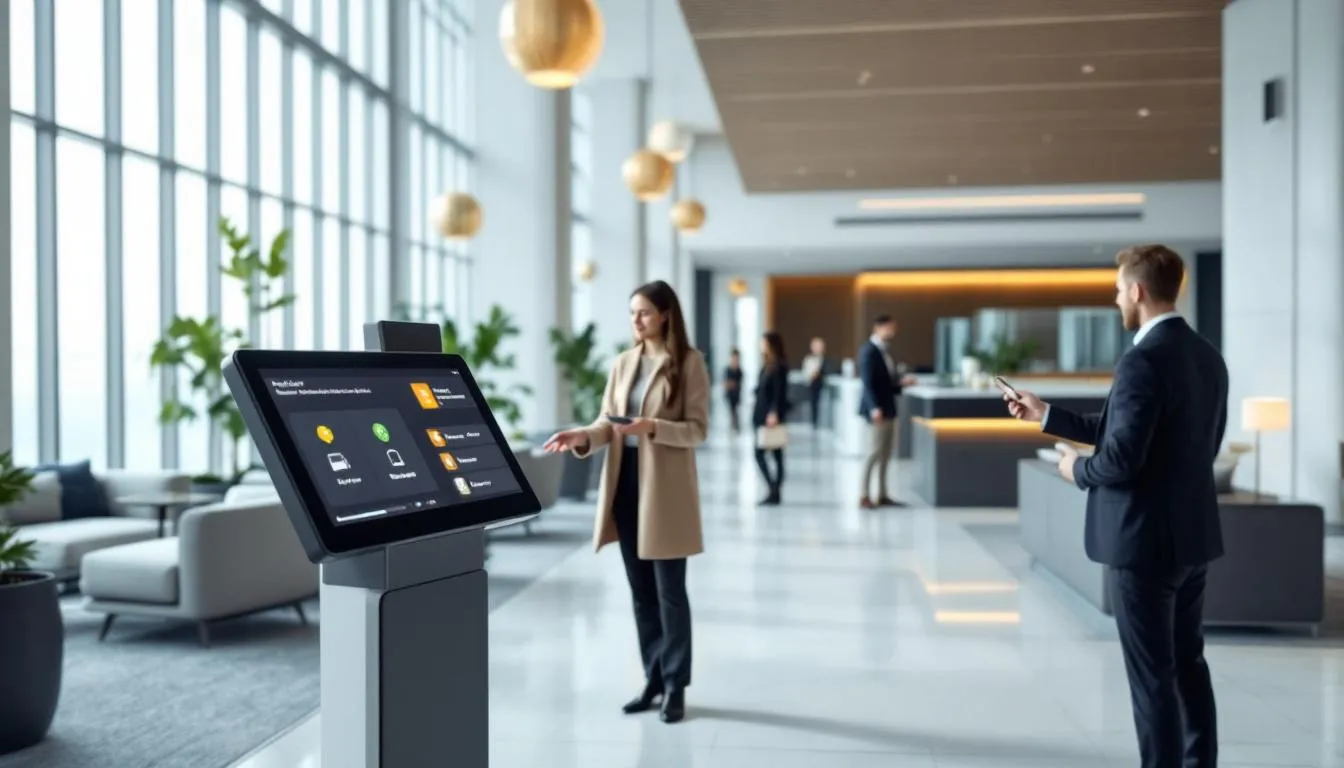
Their biggest strength? Real-time data across all locations and devices. Hotel managers can check sales, tweak prices, and manage inventory from anywhere with an internet connection. Perfect for multi-property chains or remote oversight.
Processing fees usually range from 1.4% + $0.05 up to 2.9% + $0.25 per transaction, with discounts for big volumes. When you factor in less IT hassle and automatic upgrades, cloud solutions often cost less over time than legacy systems.
Mobile and Tablet-Based Solutions
Tablet based pos systems have changed the game, letting staff take orders and payments anywhere on your property. Ideal for poolside bars, room service, and outdoor dining where fixed terminals don’t cut it.
Devices like Square handhelds sync smoothly with hotel pms, letting staff charge rooms and look up guest info on the go. They can check menus, apply discounts, and accept payments including physical gift cards and loyalty perks.
Mobile pos is also great for seasonal or event-based setups needing full functionality without permanent hardware.
Self-Service Kiosks and Contactless Options
Self-service kiosks are gaining traction in hotel quick-service spots and lobby shops. They cut labor costs and give guests quick, contactless ordering.
Kiosks integrate with guest reservations to offer personalized menus and auto room charging. Digital menus update live to show what’s in stock, so guests don’t get disappointed.
QR code ordering blends self-service with human touch—guests browse and order on their phones but still get help with payments and delivery.
Traditional Terminal-Based Systems
Though mobile and cloud are on the rise, traditional pos terminals still work well for busy, fixed locations like hotel restaurants and bars. They’re built tough for hospitality’s demands and offer fast, reliable processing.
Top-notch hardware includes customer-facing screens, built-in receipt printers, and cash drawer management to keep things running smoothly.
Multichannel Integration Platforms
The most advanced hotel pos systems unify online orders, app purchases, and in-person sales into one seamless platform. Guests can order breakfast on the app, tweak it at the restaurant, and have everything charged to their room without a hitch.
These platforms integrate with room service apps, spa bookings, and even off-site delivery, creating a smooth guest journey no matter where or how they order.
Top Hotel POS System Providers
The hotel pos market has some real heavy hitters, each with their own strengths and specialties. Finding the best pos depends on your hotel’s size, tech setup, and growth plans.
1. Prostay POS: Tableview – The All-Rounder
Prostay POS, aka Tableview, is a standout all-around hotel pos solution. It works online and offline, so your service won’t skip a beat even if the internet goes down.
Accessible on desktops, mobiles, and tablets, it gives your staff the flexibility to take orders and payments anywhere on property. Its user-friendly design and automation tools streamline food and beverage operations, cutting down manual work.
Beyond pos basics, Tableview packs in human resource management, procurement, and accounting modules—letting you run your hotel’s operations all in one place.
Its tight two-way integration with Prostay PMS means bills post directly to guest rooms in real-time, keeping every department in sync and minimizing errors.
2. Square: Versatile and Accessible
Square pos is a favorite for small to medium hotels thanks to its flexibility and pricing. It offers free plans and paid tiers, fitting a variety of budgets and needs.
Square’s ecosystem includes payment processing, inventory management, and staff scheduling software. Monthly fees start around $69 per location, with processing fees near 2.6% + $0.10 for in-person payments.
It boasts tons of third-party integrations, a user friendly interface, and solid customer support through its knowledge center. Its vast partner network connects with most major hotel pms and hospitality apps.
3. Toast: Powerhouse for Multi-Location Hotels
Toast pos shines in handling complex inventories and multi-outlet management, perfect for bigger hotels with lots of food and beverage spots.
Pricing usually runs $165 to $200 per location, reflecting its enterprise-grade features like recipe costing, ingredient tracking, and automated purchasing.
Toast’s centralized management and location-specific reports make juggling multiple restaurants easier. It also supports kitchen display systems, staff management, and profit tracking.
4. Lightspeed: Great for Diverse Businesses and Ecommerce
Lightspeed focuses on restaurant pos systems with strong hotel pms integration. It offers room charging, detailed table management, and an intuitive interface that cuts down training time.
Advanced features include wine list management, complex modifiers, and server performance tracking. Integration with guest reservations helps personalize service.
Pricing starts around $69 per month for basic plans, with enterprise options offering custom integrations and dedicated support.
5. Clover: Premium Hardware and Analytics
Clover pos stands out for its high-quality hardware and deep analytics. It offers everything from traditional countertop terminals to modern tablets.
Its built-in analytics provide insights into menu performance, staff productivity, and guest spending, plus predictive inventory and dynamic pricing suggestions.
Monthly fees range from $14.95 to $114.85 depending on features, with extra costs for premium hardware and hospitality modules.
6. Mews POS: Designed for Hotels
Mews pos is built specifically for hotels, integrating natively with the Mews hotel pms for smooth operations.
Its mobile-first design supports service anywhere on property—from poolside to guest rooms. Features include automatic room charging, guest preference tracking, and loyalty program integration.
Pricing is custom based on property size and needs, making it ideal for boutique and lifestyle hotels seeking tailored solutions.
7. SpotOn: Staff Management Specialist
SpotOn pos excels in staff scheduling and payroll integration, great for hotels with complex labor needs.
It offers time tracking, tip management, performance analytics, inventory tools, cost analysis, and accounting integrations.
Pricing starts around $99 per month, with enterprise options for larger properties. Its staff management features often justify the investment for labor-heavy operations.
Hotel POS System Pricing: What to Expect
Understanding the full cost of hotel pos systems means looking beyond software fees. Hidden expenses and ongoing costs can add up, so careful budgeting is key.
Software Subscriptions
Most hotel pos systems charge monthly subscriptions from $69 to $200 per location. Basic plans cover core pos functions, simple reporting, and limited integrations. Premium tiers unlock advanced analytics, multi-location management, and priority support.
Some providers, like Square, offer free plans, but these often lack room charging, inventory management, or staff scheduling features needed for full-service hotels.
Enterprise deals usually involve custom pricing based on size, integrations, and support. Big hotel chains often negotiate discounts and specialized contracts.
Hardware Costs
Hardware expenses vary widely. A basic tablet based pos system setup might run about $1,000 per location, while full terminal installations for large restaurants can top $5,000.
You’ll need pos terminals or tablets, receipt printers, cash drawers, barcode scanners, and payment devices. High-volume spots might need backup gear and kitchen display systems.
Mobile pos setups lower upfront costs but may require device replacements over time. Factor in warranties and support when comparing.
Payment Processing Fees
Processing fees are ongoing costs that depend on volume, payment types, and processor deals. Rates typically range from 1.4% + $0.05 for large operations to 2.9% + $0.25 for smaller ones.
Contactless payments and international cards usually cost more. Hotels with many international guests should plan for these premiums.
Direct processor relationships can cut fees compared to bundled options, but integrated solutions often deliver smoother reconciliation, justifying slightly higher rates.
Hidden and Extra Costs
Implementation often costs more than expected due to integration, data migration, and training needs. Budget for professional setup, configuration, and staff onboarding.
Ongoing expenses may include premium support, software updates for legacy systems, and integration licenses.
Remember, efficiency gains—like 15-25% labor cost cuts and 30% better inventory accuracy—often offset these costs within the first year.
| Cost Category | Low-End Estimate | High-End Estimate | Ongoing Fees |
|---|---|---|---|
| Software (monthly) | $69/location | $200/location | Monthly |
| Hardware | $1,000/location | $5,000/location | One-time |
| Processing Fees | 1.4% + $0.05 | 2.9% + $0.25 | Per transaction |
| Implementation | $2,000 | $10,000+ | One-time |
| Training | $500 | $2,000 | One-time |
Getting Your Hotel POS System Up and Running
Bringing a new hotel pos system on board takes planning, teamwork, and realistic timelines. Integrating new tech with existing operations means preparation and expert help are essential.
PMS Integration: The Heart of Success
Your hotel pos’s success depends on smooth integration with your property management system. Make sure your chosen provider offers certified connections with your current pms before signing on.
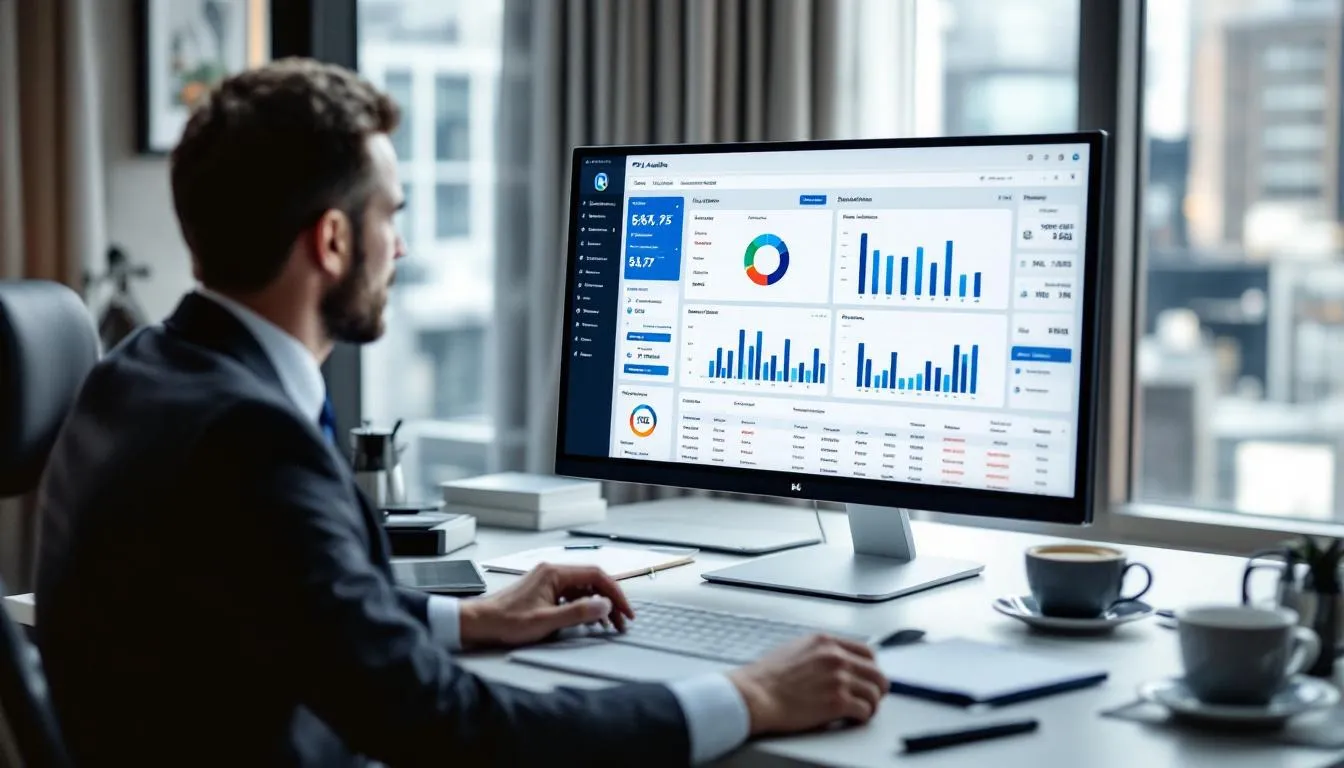
API needs vary; some systems require custom work for full features. Test room charging, guest lookup, and folio syncing thoroughly before going live.
Prepare for possible downtime during integration and have backup plans for manual processes. Gradual rollouts and testing phases minimize disruptions.
Training Your Team
Switching from legacy pos systems means training your staff well. User friendly interfaces help, but thorough training ensures everyone uses advanced features confidently.
Tailor training to roles—from basic order entry for seasonal workers to in-depth reporting for managers. Hands-on practice and reference guides support ongoing learning.
Address staff concerns about new tech by highlighting benefits like less manual work and better tip management. Successful rollouts often include feedback loops and refresher sessions.
Hardware and Network Setup
Reliable internet is a must for cloud based pos systems. Check your network and upgrade if needed to keep things running smoothly during busy times.
Plan hardware placement for efficiency, security, and accessibility. Backup power and offline modes are smart safety nets.
Mobile pos needs strong wifi coverage everywhere staff serve. Conduct site surveys to spot dead zones and improve networks before deployment.
Data Migration and Backups
Moving data from old systems requires care to keep history intact and operations smooth. Work with pros to plan migrations and test thoroughly.
Set up backups and test restores before launch. Consider running old and new systems in parallel during transition.
Document all settings and integrations for disaster recovery. Keep vendor support contacts handy for tricky issues.
Support and Maintenance
Check vendor support options—response times, escalation paths, and expertise. Premium contracts often offer priority help and dedicated managers.
Plan for regular updates and new features, which may need retraining or process tweaks. Have local tech support ready for hardware fixes and emergencies.
Monitor system health and keep communication open with staff to catch issues early and find improvement chances.
What’s Next? Future Trends in Hotel POS Tech
Hotel pos technology keeps evolving, driven by guest expectations, innovation, and efficiency needs. Staying ahead means knowing what’s coming.
Contactless Ordering and Safety First
Contactless ordering and payments have moved from luxury to must-have. Guests expect QR code menus, mobile wallets, and minimal physical contact.
Guest devices now enable smooth ordering where they browse menus, customize orders, and pay without handling paper.
Self-service kiosks are spreading beyond quick-service to full-service hotels. They handle complex orders, dietary needs, and link to guest reservations for tailored experiences.
AI-Powered Insights and Revenue Boosts
AI brings predictive analytics for inventory, demand forecasting, and dynamic pricing. It studies past data, seasons, and real-time trends to optimize operations automatically.
AI recommendation engines spot upsell chances by analyzing guest preferences and spending. Personalized suggestions boost check sizes and guest happiness.
Predictive inventory management cuts waste and keeps stock ready by analyzing consumption, seasons, and events. It can auto-adjust ordering and menu availability.
Loyalty and Personalization Integration
Deep ties between pos systems and loyalty programs create personalized guest experiences at every touchpoint. Guests get custom menu picks, automatic discounts, and targeted promos.
Combining pos data with guest profiles reveals dining preferences, allergies, and spending habits. This enables proactive service and smart marketing.
Personalization extends to dynamic pricing based on guest status, room type, and history. VIPs might get upgrades or exclusive menu items automatically.
Voice Ordering and Smart Rooms
Voice-activated ordering via in-room smart speakers and phones is the next convenience leap. Guests can order room service, ask questions, and book with simple voice commands.
Smart room systems sync to deliver services based on guest habits and preferences. For example, suggesting breakfast based on past orders or arrival times.
Advanced voice tech handles complex orders and special requests while linking to room charges and folios. It cuts phone calls and offers 24/7 ordering.
Sustainability and Green Tech
Sustainability features help hotels track and reduce environmental impact through waste monitoring, energy tracking, and supplier ratings.
Digital receipts and paperless ordering cut physical waste while keeping detailed records.
Supply chain tracking lets hotels monitor and report on food and beverage environmental footprints, supporting certifications and green marketing.
Wrapping Up
Choosing the right hotel point of sale systems means balancing today’s needs with tomorrow’s goals. The best pos fits smoothly with your hotel’s operations and grows as your business evolves.
Success comes from carefully vetting PMS integration, investing in staff training, and planning realistic rollouts. Hotels that do see better efficiency, happier guests, and more revenue within the first year.
Looking ahead, hotel pos tech will deepen guest service integration, harness AI for optimization, and track sustainability. Hotels that build a strong tech foundation now will be ready for whatever comes next.
Whether upgrading from legacy systems or starting fresh, pick providers with hospitality know-how, solid integrations, and great support. The right hotel pos system pays off in smoother operations, happier guests, and stronger revenue across your entire property.
